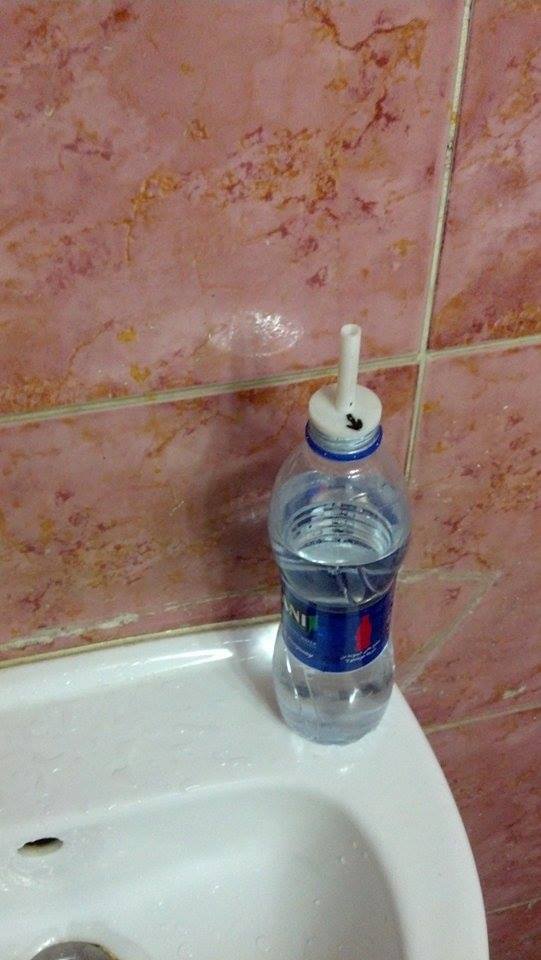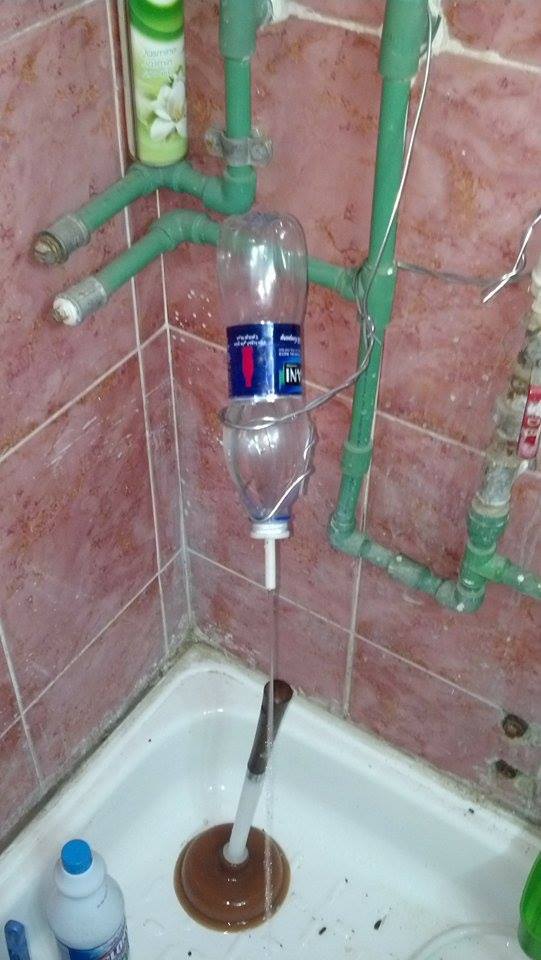Summary
wudu’ (ablution) requires washing different body parts before praying in islam. Normally it is done using normal water tapes which is by design isn’t compatible with the process of wudu’ as it should be open for the whole process.
Egypt is expected, with the current population predictions, to reach the threshold of absolute scarcity 500 m3/captia/year in 2025. Most water consumption is used in agriculture. ( according to water scarcity report by the Ministry of water and irrigation, Egypt, Feb 2014).
wudu’ isn’t from the agriculture share of water consumption, but it is a daily consumption in the whole muslim countries.
Background
Not enough effort is being done addressing this specific water problem although there are some hacks that could be “remixed” to adapt to the specific design requirements of wudu’.
A very simple hack was tested recently which still needs development in order to be user friendly and economically feasible.
The hack was simply using the idea used in oil bottles to reduce the flow of pouring during cooking through a small hole in the cap, so a simple design was made and 3d printed to fit the normal plastic water bottle. This bottle (prototype) was tested in a coworking space in Cairo. It needed better installation and needed to be more user friendly. Also upscaling to be used in a typical mosque where usually from 5 to 15 tapes are used requires redesigning the space.
the 1st prototype pictures
There are other ideas that could be used, some are mechanically adjusting the pipes to a low water flow. other requires controlling the water tap to close and open during the process of wudu’, other requires redesigning the setting like using different basins for legs and hands.
PS: There is already an expensive machine called Auto Wudu Washer which uses 1.3 litre per wudu, which makes a datum to measure the efficiency of the produced prototype
Challenge
The challenge is is to produce a cheap DIY open source hack for the water taps in the mosques ( usually the normal ablution space contains 5-15 taps , depends on the size ).
Process ( & Call for Help)
a hackathon-like setting where participants build on different ideas and develop different practical prototypes.Plus discussing different questions like how to reach a zero waste process? and what could be the next practical steps for such a project ?
depending on the results of the day, hopefully one prototype could be tested to have another feedback loop to continue the design process.

